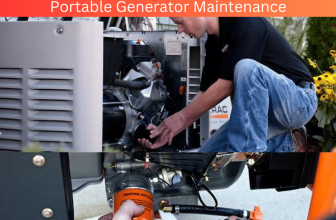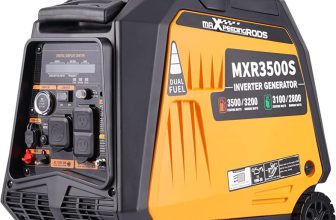Portable generators provide a reliable source of backup power during emergencies and power outages, making them an essential investment for countless homes and businesses.
With the average lifespan of 1,000-2,000 operation hours or about 10-20 years, you might be curious how long your generator can keep powering through.
In this comprehensive overview, we will explore factors that affect the lifespan of portable generators, discuss different types of generators and their longevity, share tips on extending their usefulness, and reveal signs when it’s time to retire your trusty generator.
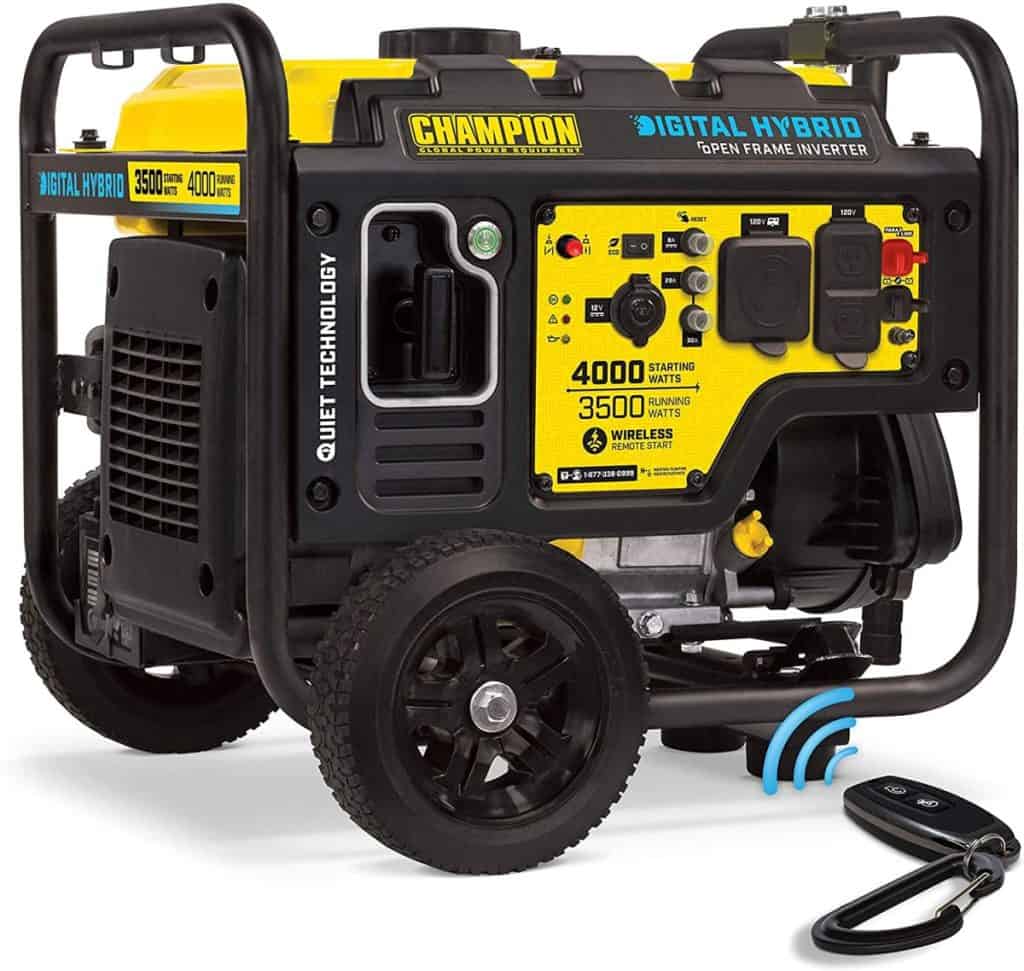
Key Takeaways
- The lifespan of portable generators typically depends on factors such as the type and quality of generator, frequency of use, maintenance and upkeep, and environmental conditions.
- Gasoline generators generally last up to 10-15 years with regular maintenance, while propane and dual-fuel options can last up to 20 years. Diesel-powered generators have a longer lifespan of around 20-30 years due to their durable construction, while solar-powered generators can last up to 20 years.
- To maximize the lifespan of your portable generator, it’s essential to follow manufacturer guidelines for regular service and maintenance. Using high-quality oil and fuel in addition to proper storage and handling can also help prolong its life. Upgrading to newer technology when needed is another way to extend its usefulness.
- Regular testing and inspections are crucial for optimal performance and identifying potential issues before they become significant problems. Finding a balance between overuse and under-utilization is vital in maximizing the value of investment into owning a portable generator.
Factors Affecting The Lifespan Of Portable Generators
The lifespan of a portable generator greatly depends on various factors such as the quality and type of generator, frequency of use, maintenance and upkeep, and environmental conditions.
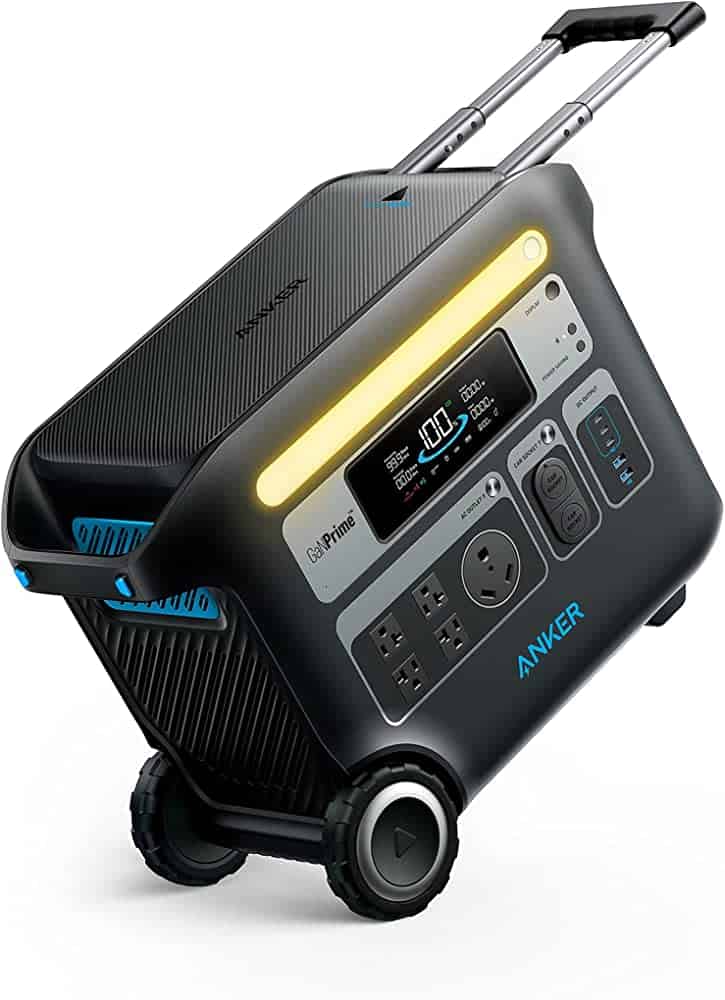
Image Credit: amazon
Quality And Type Of Generator
As a portable generator owner, you’re likely to understand that not all generators are created equal. The quality and type of your generator play a significant role in determining its lifespan.
Considering different types of generators – gasoline, propane, diesel or solar-powered ones – each has its pros and cons related to longevity. Gasoline-powered portable generators generally offer 8-12 hours of continuous power but require more frequent maintenance due to their components wearing out faster than other types.
Meanwhile, diesel engines tend to last longer due to their sturdier construction. It’s essential for you as an owner to assess what best suits your needs based on factors like energy requirements and environmental codes before choosing one for long-term use.
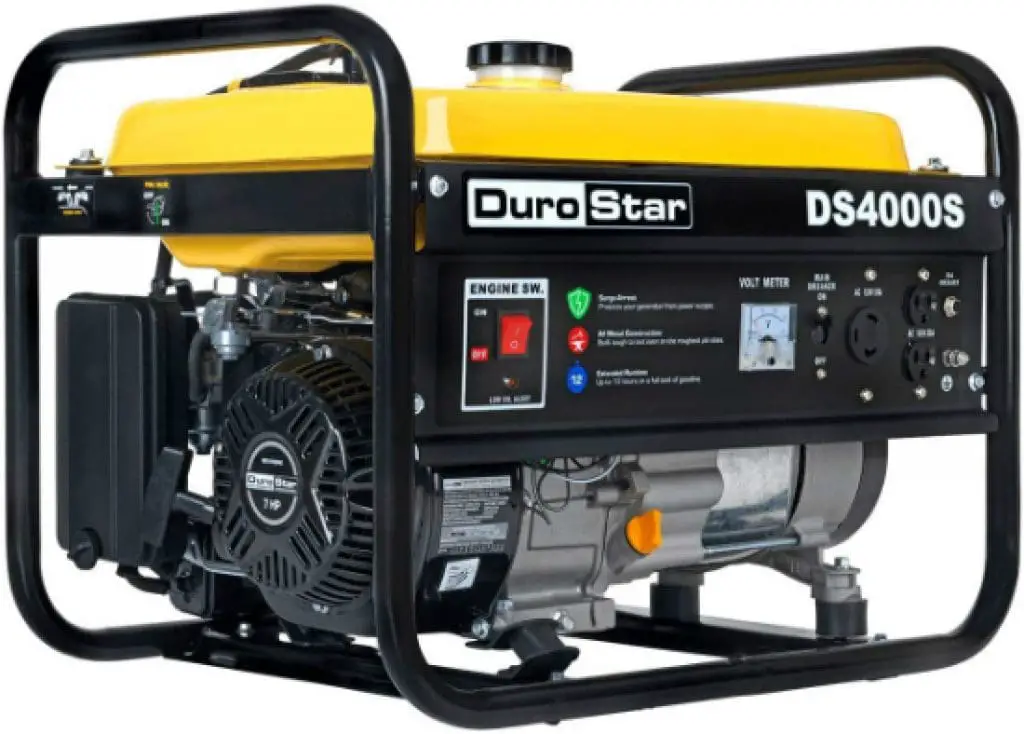
Image Credit: electrogardentools
Frequency Of Use
As a portable generator owner, it’s essential to consider the frequency of use when evaluating the overall lifespan of your equipment. How often you rely on your generator directly impacts its longevity and performance.
However, even with sporadic use, regular testing and maintenance are crucial for ensuring optimal performance and prolonging the life of your machine. By running your portable generator at least once a month for about 30 minutes, you can prevent common issues such as fuel system clogging and battery drain while also identifying any possible shortcomings that require attention.
Remember that every time you start up your portable generator, whether in an emergency or just during monthly testing; it adds hours onto its operation lifespan account. Using high-quality oil and fuel along with preventive maintenance practices helps mitigate wear and tear due to frequent usage – keeping both emission levels low while also extending the time between part replacements or major services conducted by qualified technicians.
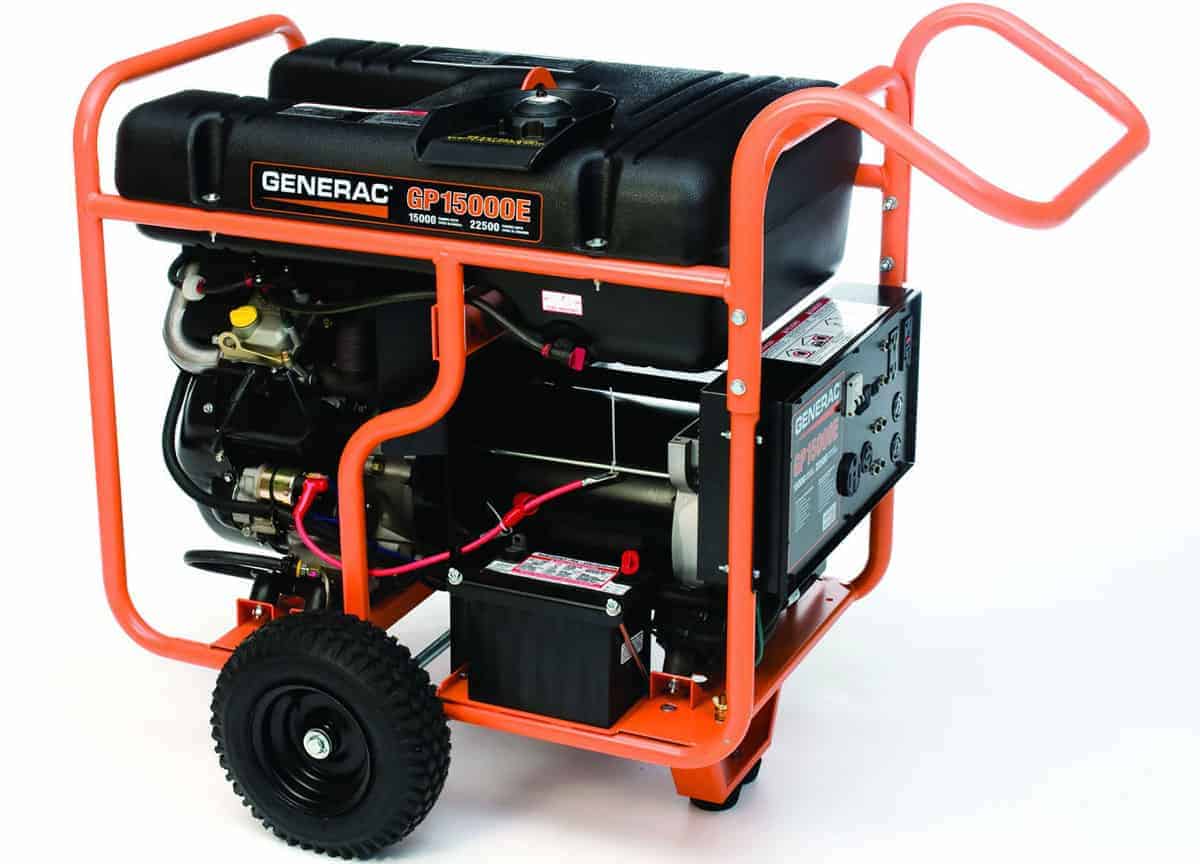
Image Credit: snkanaam
Maintenance And Upkeep
As a portable generator owner, you know how essential maintenance and upkeep are in ensuring the longevity of your investment. Properly maintaining your generator not only helps it last longer but also ensures efficient performance when you need it most during power outages.
A well-maintained portable generator can last for around 1,000 to 2,000 hours of use, translating to roughly 10-15 years! But remember that neglecting preventive maintenance can lead to various issues like moisture damage or parts replacement needs sooner than expected.
For instance, using high-quality oil and fuel will help prevent build-up that could affect performance over time. Additionally, make sure you regularly test your generator under load to ensure everything runs smoothly – an easy way to catch potential issues before they become significant problems.
And don’t forget about protecting your generator from dust and moisture as these elements can wreak havoc on its internal components.
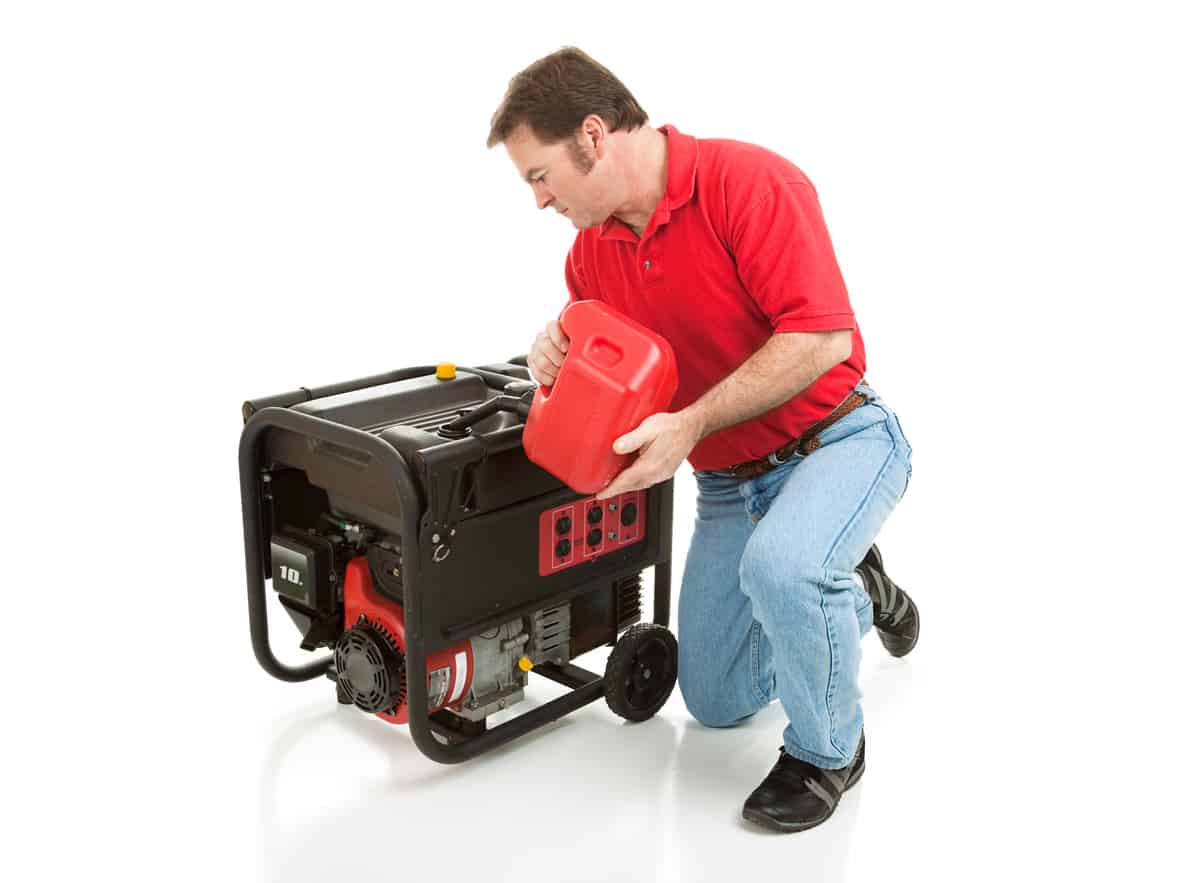
Image Credit: empowergenerators
Environmental Conditions
The environmental conditions where you store your portable generator can significantly affect its lifespan. Dust and moisture can damage the mechanical components of your generator, particularly if it is left outside in extreme weather conditions.
Likewise, exposure to heat and cold temperatures may adversely impact the generator’s overall performance. To safeguard against such risks, ensure that you choose a dry, ventilated location for storage and avoid placing it on an uneven surface or in areas prone to flooding.
It is also crucial to follow manufacturer guidelines regarding maintenance schedules to keep your equipment running smoothly over time.
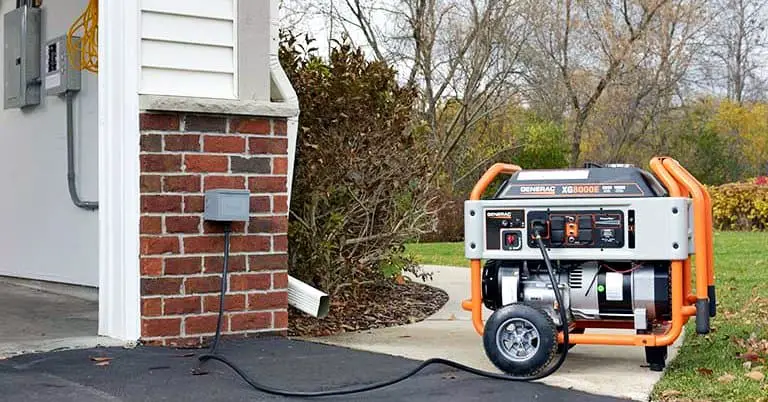
Image Credit: shtfpreparedness
Typical Lifespan Of Different Types Of Portable Generators
Gasoline generators typically last for 10-15 years with regular maintenance, while propane and dual-fuel generators can last up to 20 years. On the other hand, diesel-powered generators have a longer lifespan of around 20-30 years due to their durable construction.
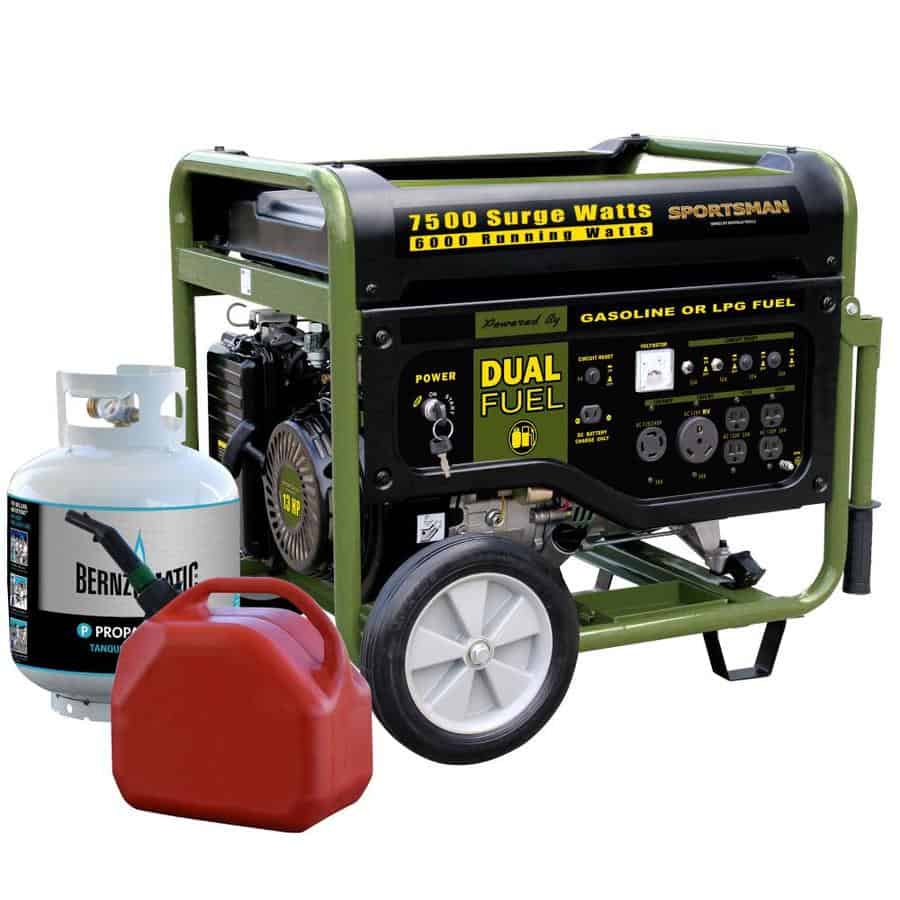
Image Credit: lowes
Gasoline Generators
Gasoline generators are a popular and widely used type of portable generator due to their affordability and availability. These generators typically run for around 8 to 12 hours on a full tank of fuel, depending on the load capacity and wattage needs.
It’s important to note that gasoline-powered generators are not designed for continuous use, as they can overheat and cause damage or even start fires if operated for extended periods or overloaded beyond their capacity.
With regular maintenance and service by qualified technicians, gasoline generators can last up to 10 years before needing replacement parts or an upgrade to newer technology.
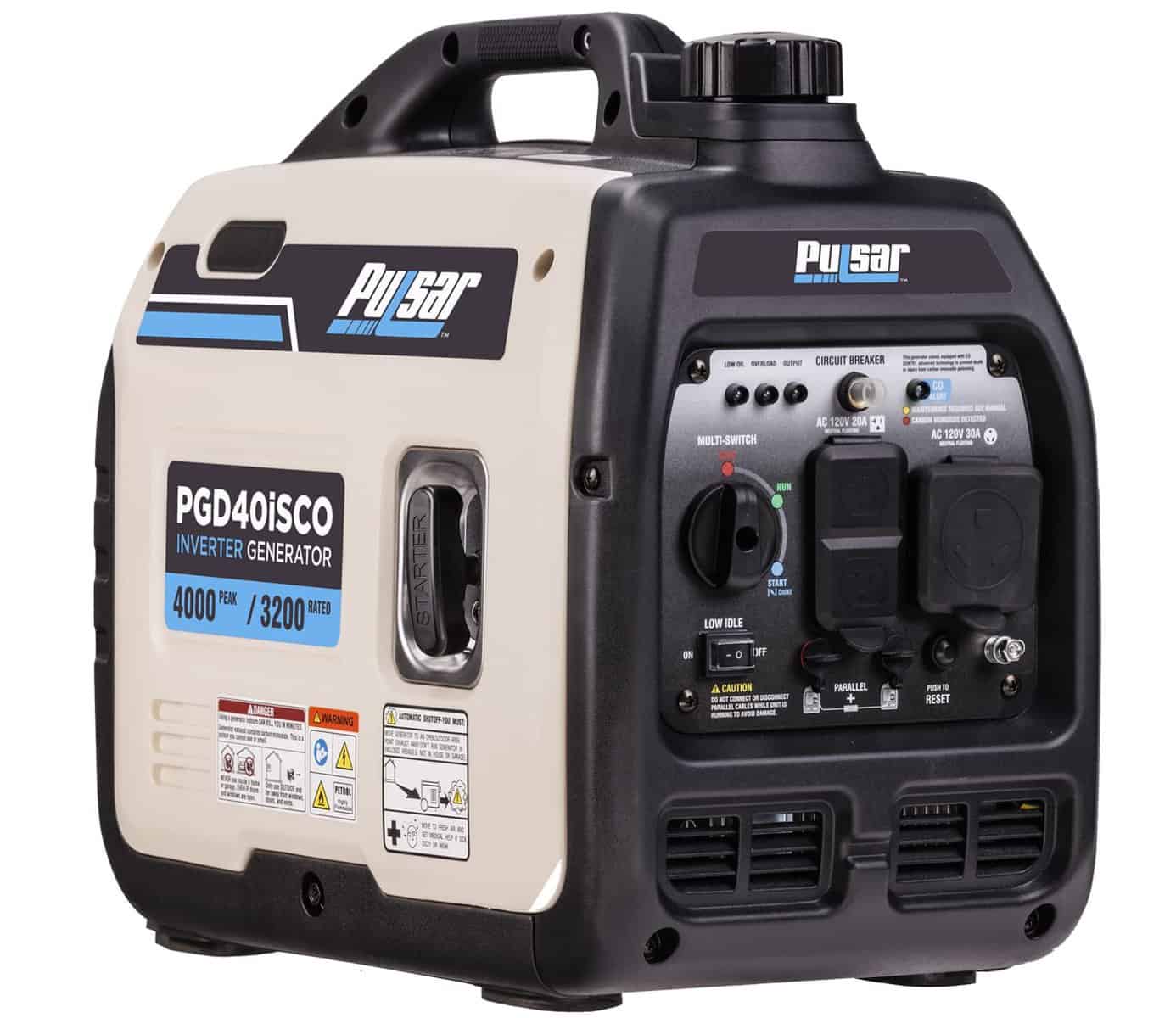
Image Credit: gavins-garage
Propane Generators
I’ve found that propane generators are a reliable choice for many portable generator owners. They can last up to several weeks if used economically and even when used heavily, they can run for a decent number of hours.
Well-maintained propane generators can run for about 150 to 200 hours before requiring refueling. Though their upfront cost may be higher than gasoline-powered options, the fuel efficiency and longer lifespan of propane could make them a more economical choice in the long term.

Image Credit: popularmechanics
Dual-fuel Generators
Dual-fuel generators are the perfect solution for those who want to minimize fuel costs and maximize convenience. They can run on either propane or gasoline, giving you more flexibility when it comes to finding fuel during emergencies.
Dual-fuel generators also tend to be quieter than traditional gas-powered models and produce fewer emissions, making them an environmentally-friendly option.
The Generac GP2200i is a popular dual-fuel model that provides up to 7 hours of runtime at 50% load on a single tank of gas and up to twice as long on a standard 20-pound propane tank.
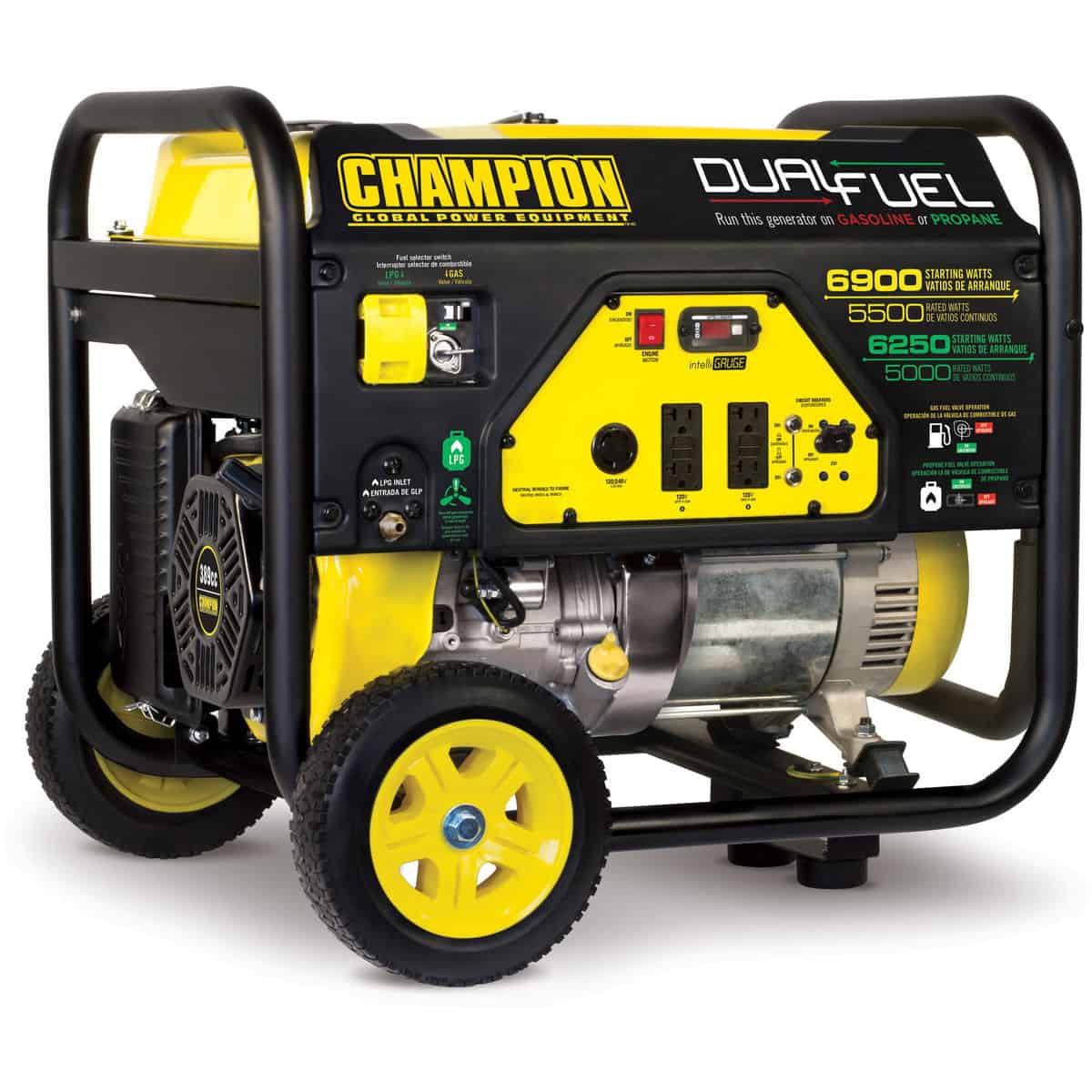
Image Credit: walmart
Diesel Generators
As a portable generator owner, you may be curious about the lifespan of your diesel generator. Typically, diesel generators can last anywhere from 15,000 to 50,000 hours before requiring servicing.
This impressive lifespan is due to their efficient design and high-quality construction. However, it’s important to note that regular maintenance and servicing are still necessary to maintain this longevity.
regular maintenance and servicing
Diesel-powered generators can typically run for 12,000 to 20,000 hours before needing an engine overhaul if exercised regularly.
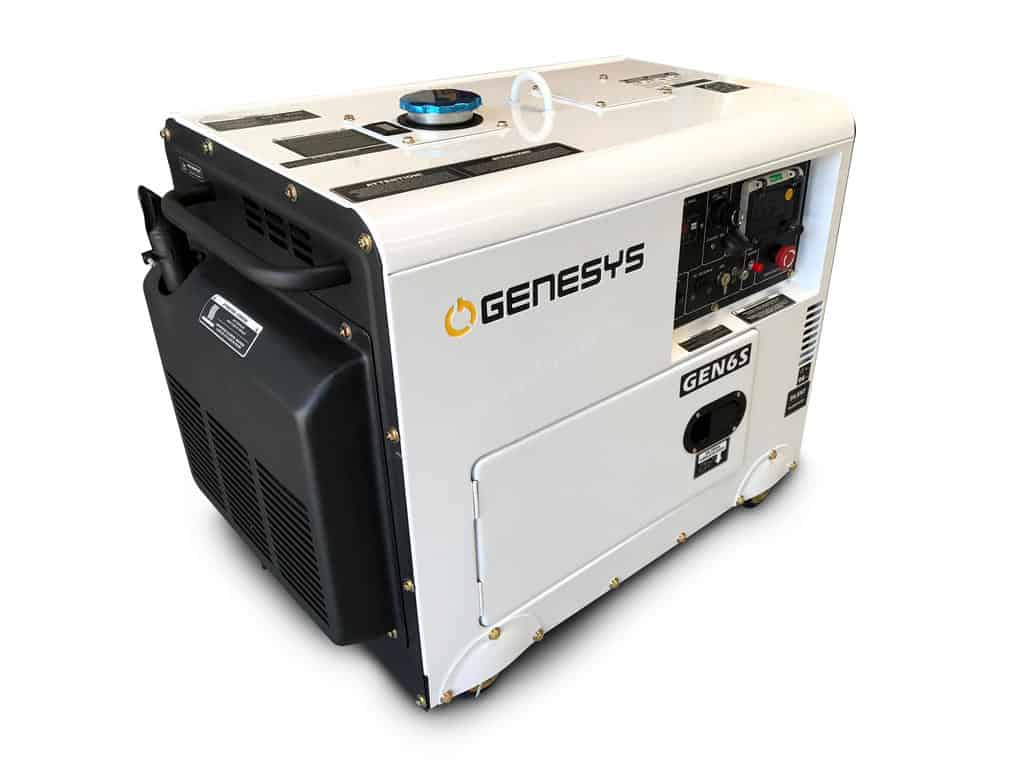
Image Credit: machines4u
Solar-powered Generators
I absolutely love my solar-powered generator because it’s so efficient and eco-friendly. The great thing about these portable generators is that they are very environmentally friendly, and they require no fuel or oil changes.
They also have a longer lifespan compared to other types of generators, with an average lifespan of around 20 years.
What’s amazing is that even the smallest solar generator can provide hours of power to charge phones while camping or power small electronics while on the road. This type of portable generator is perfect for those who want to use renewable energy as their primary source of electricity or use them as a backup when traditional sources fail.

Image Credit: palmetto
Extending The Lifespan Of Your Portable Generator
Proper maintenance and servicing, operating within recommended capacity, upgrading to newer technology, and proper storage and handling are all crucial in extending the lifespan of your portable generator.
Regular Maintenance And Servicing
As a portable generator owner, regular maintenance and servicing are critical to extend the lifespan of your equipment. Maintaining the recommended service schedule ensures that all parts work efficiently and reduces wear and tear.
regular maintenance and servicing
Additionally, following manufacturer guidelines on how often to change engine oil can help prevent dust accumulation in the internal components of your machine. Regular inspections by qualified technicians can also uncover issues before they become serious problems.
Proper Storage And Handling
As a portable generator owner, it’s essential to store and handle your equipment correctly to ensure its longevity. One critical aspect of storage is keeping your generator in a dry, ventilated environment away from dust and moisture.
Moisture damage can lead to rusted components or fail the field windings, resulting in costly repairs or replacement. Another crucial element is proper fuel handling. Always follow manufacturer guidelines for fuel type recommendations and storage procedures.
Regularly inspecting your generator for signs of wear and tear is equally important in ensuring its longevity. A qualified technician should perform regular servicing on mechanical components like cleaning air filters, changing oil and filters, adjusting spark plugs’ gaps are vital for optimal performance.
Operating Within Recommended Capacity
It’s important to operate your portable generator within its recommended capacity to avoid damaging the equipment and prevent hazards. Overloading the generator can cause damage to its internal components, leading to costly repairs or even replacement.

To determine the appropriate load size for your generator, consider your energy needs and consult the manufacturer’s guidelines. For example, if you plan on using your portable generator for backup power during a power outage, calculate the total wattage needed for essential appliances such as refrigerators and lights.
By operating within recommended capacity and being mindful of your energy needs, you will prolong your portable generator’s lifespan while ensuring safe operation for yourself and others around you.
Upgrading To Newer Technology
If you’re looking for ways to extend the lifespan of your portable generator, upgrading to newer technology may be a great option. Newer generators run more efficiently and use cleaner fuels, which can reduce emissions and help protect the environment.
Some companies even offer self-contained generators that don’t rely on fossil fuels at all! When considering an upgrade, look for features like automatic voltage regulation (AVR) and energy-efficient components that will help keep your generator running smoothly for longer periods of time.
Signs Of A Failing Portable Generator And Conclusion
A failing portable generator can exhibit signs like difficulty starting or keeping it running, poor performance or power output, unusual noises or vibrations, visible damage or wear and tear; therefore, regular inspection and care are necessary to ensure the generator is running in optimum condition.
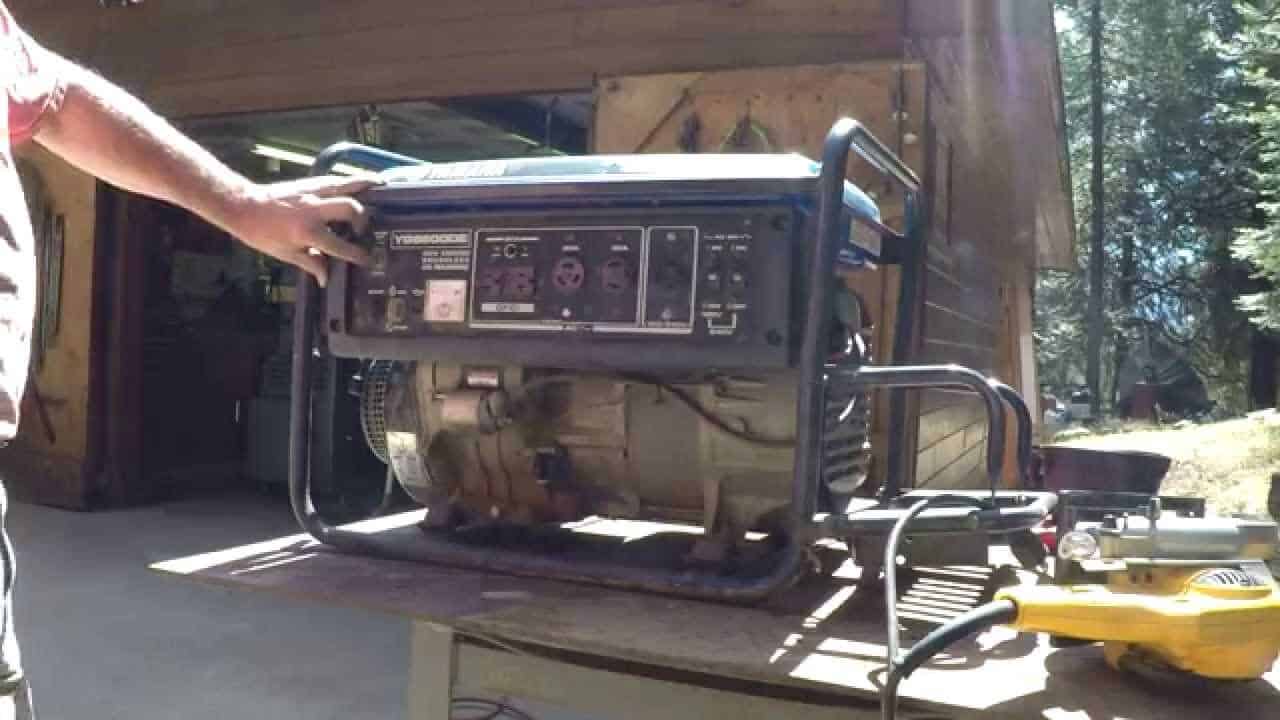
Image Credit: youtube
Difficulty Starting Or Keeping It Running
As a portable generator owner, you may experience difficulty starting or keeping your generator running. This could be due to a variety of issues such as low fuel levels, clogged air filters, worn-out spark plugs, or even an overloaded generator.
Always ensure that your generator has enough fuel and check the oil levels before starting it up. Additionally, regular inspection and care for your generator such as cleaning the air filter and adjusting spark plug gaps can help prevent these problems from occurring.
Poor Performance Or Power Output
One of the most common signs that your portable generator is on its way out is a decrease in performance or power output. If you notice that your generator isn’t running as smoothly as it used to, or if it’s not producing enough power, then there may be an underlying issue.
To avoid these issues, make sure to follow the recommended maintenance schedule for your specific model of generator and regularly inspect all components for wear and tear.
It’s also important to operate your generator within its recommended capacity and keep it properly fueled with high-quality fuel and oil.
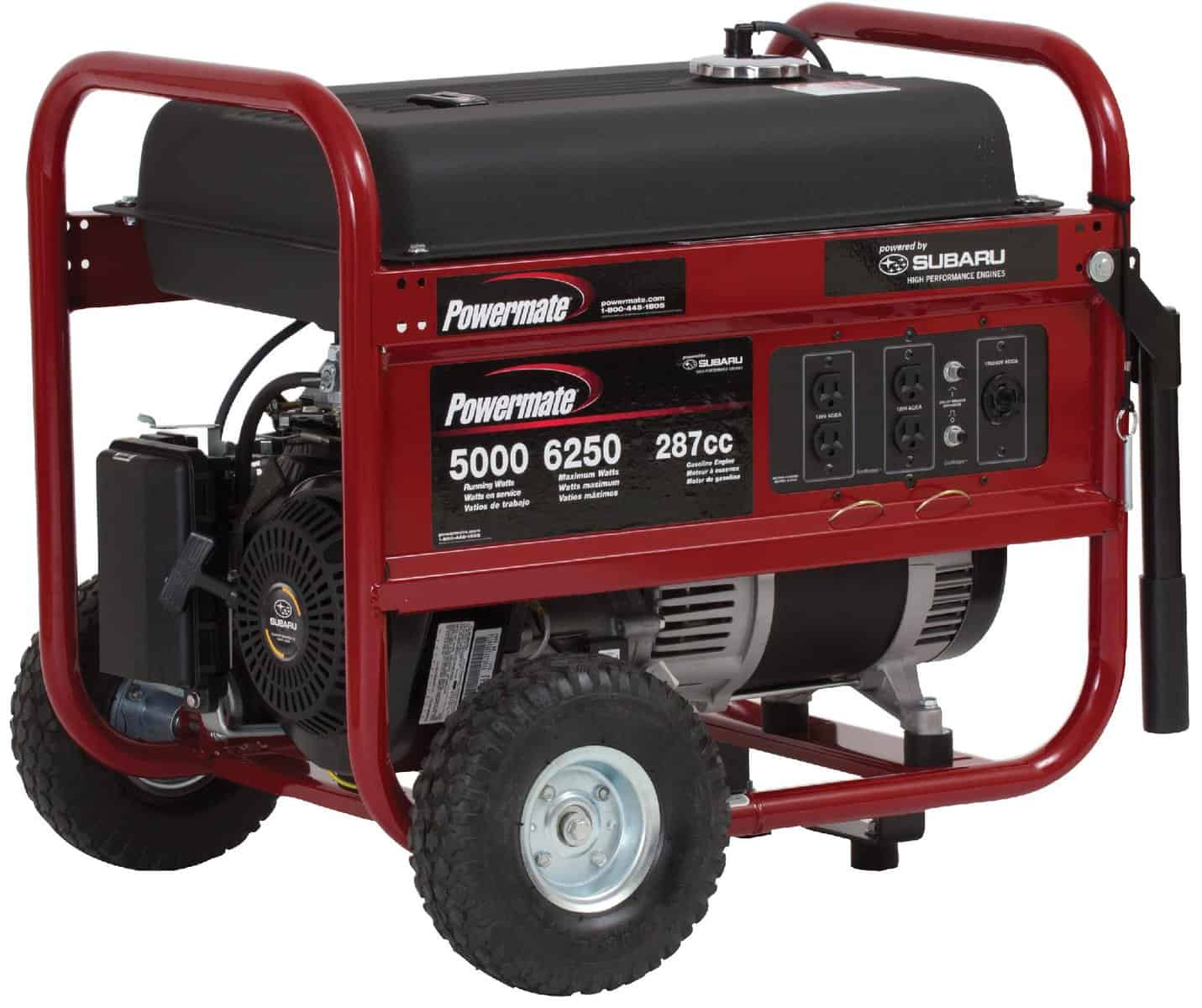
Image Credit: gregsmallengine
Unusual Noises Or Vibrations
If you notice any unusual noises or vibrations while operating your portable generator, it could be a sign of a failing unit. These symptoms can indicate problems with the engine, fuel system, electrical system, or other mechanical components.
Ignoring these warning signs can lead to further damage and even pose safety risks such as fires and equipment failure. It’s always better to address these issues early on with regular inspections and proper maintenance according to manufacturer guidelines.
Visible Damage Or Wear And Tear
As a portable generator owner, it’s essential to keep an eye out for any visible damage or wear and tear on your unit. Dents, cracks, or other signs of external damage can indicate internal issues that may require service or repair.
It’s especially important to inspect the cords regularly for signs of wear and tear such as corrosion, chewed wires, or other imperfections every six months or more frequently.
Also, it’s crucial to ensure that the fuel system is free from leaks and properly sealed. A lack of proper maintenance increases the risk of equipment failure and poses a safety hazard in harsh conditions like humidity or extreme temperatures.
According to U.S Consumer Product Safety Commission (CPSC), carbon monoxide poisoning from generators is responsible for 85 deaths each year in America alone; hence routine checks are vital for preventative measures against any injuries caused by these units’ faulty mechanisms.
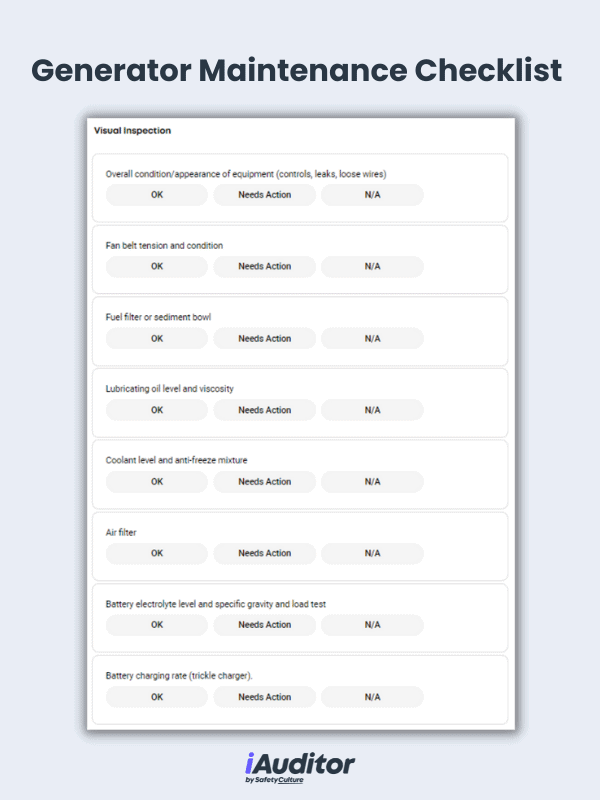
Image Credit: safetyculture
When To Retire And Replace Your Generator
As a portable generator owner, it’s important to know when it’s time to retire and replace your generator. While some generators can last up to 10-15 years with proper maintenance and upkeep, an old generator that is more than a decade old and has experienced wear and tear may need to be replaced.
Additionally, if you notice any signs of a failing generator such as difficulty starting or keeping it running, poor performance or power output, unusual noises or vibrations, visible damage or wear and tear – it may be time for an upgrade.
It’s always better to err on the side of caution when dealing with mechanical equipment like generators. With new technology constantly emerging in this field, upgrading your current model can result in better fuel efficiency, emissions reduction while also ensuring that you have access to reliable power during outages.
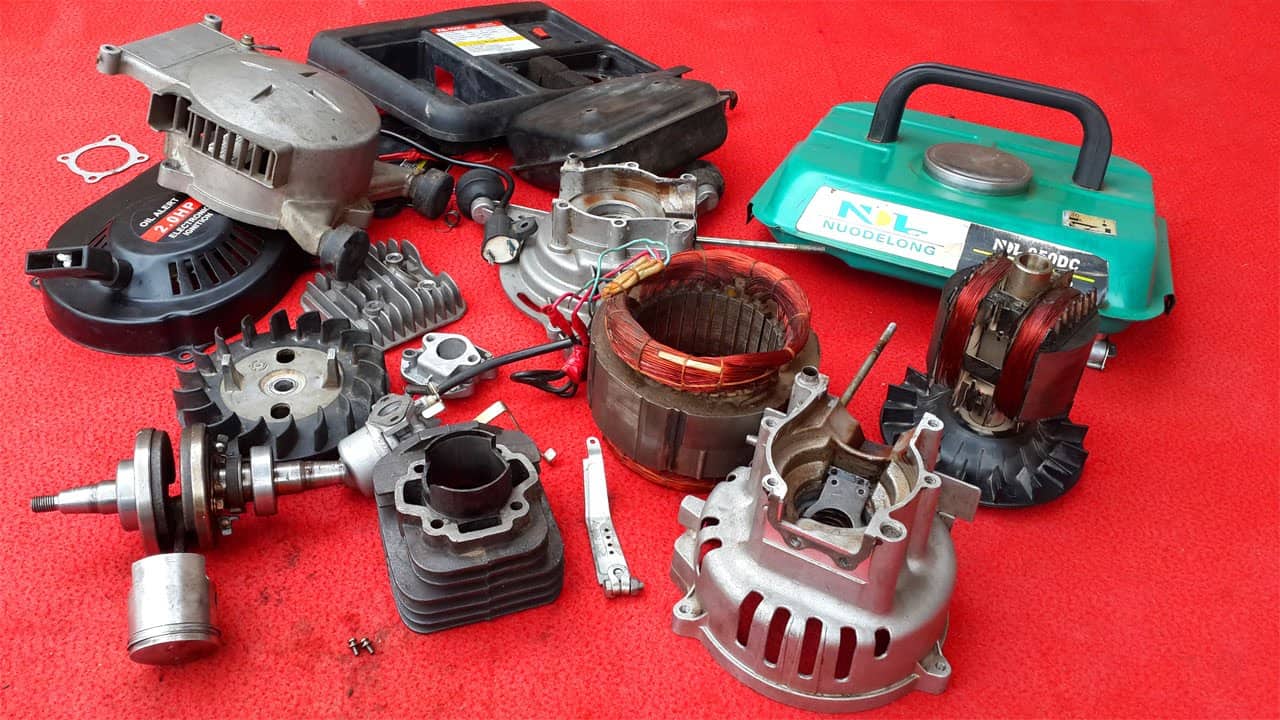
Image Credit: youtube
How long do portable generators typically last?
The lifespan of a portable generator depends on several factors such as the frequency of use, maintenance practices and its overall quality. However, with proper care and routine maintenance, most portable generators should last between 10-30 years.
What are some tips for maintaining my portable generator to ensure its longevity?
To extend the life of your portable generator, make sure to follow the manufacturer’s recommended maintenance schedule which usually includes regular oil changes, air filter replacement and checking/adjusting spark plugs. Additionally, it is important to store your generator in a clean dry place when not in use and avoid overloading or underloading it during operation.
Can I repair my own portable generator if something goes wrong?
While some minor repairs such as replacing a spark plug or changing an oil filter can be done by individuals with basic mechanical skills – we recommend consulting with a certified technician for any major repairs/maintenance work needed on your unit.
When should I consider replacing my old portable generator instead of repairing it?
In general – if older than 10-years-old –consider updating equipment via purchasing new model options they will be more energy-efficient & harder working on battery power: newer models are often designed with better materials that resist wear & tear along with other features like lower noise levels or increased fuel efficiency that could eventually result in savings down stream due to improved performance efficiencies within all required time needs/environs (i.e., wetter areas where electrical systems might suffer damages). If you experience frequent breakdowns after following proper storage/maintenance guidelines over longer periods then having invested into replacement/upgrades may be necessary since cost outlays related repairs become non-competitive.



